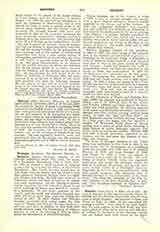

Bentney (alias BENNET), WILLIAM, an English Jesuit priest b. in Cheshire, 1609; d. October 30, 1692. He entered the Society of Jesus September 7, 4630, was sent to the English mission in 1640, and labored there with great zeal and success for forty-two years. He was then arrested, at the instigation of a nobleman to whose sisters he was administering the sacraments, and was taken to Leicester gaol. No one in those parts being willing to bear witness against him, Bentney was at once transferred to Derby, where he was tried and sentenced to death at the spring assizes of 1682. His execution was delayed for unknown reasons, and on the accession of James II he was released. He was rearrested, however, tried, and condemned after the Revolution, but the sentence remained suspended, and in 1692 he died in Leicester gaol.
SYDNEY F. SMITH

